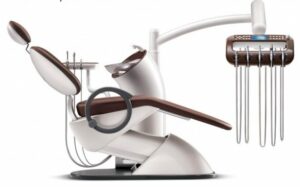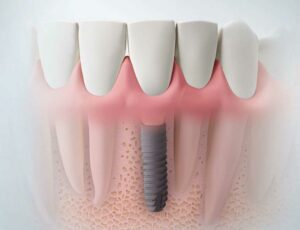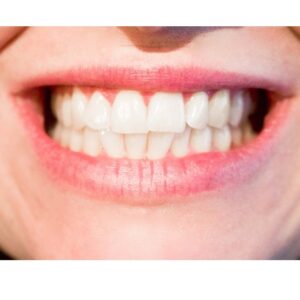Dental implants are an increasingly popular form of tooth replacement. By giving replacement teeth artificial roots in the jaw, implants provide long-lasting and comfortable results.
For most people, the rate of implant failure remains extremely low — one study indicates a one-year implant survival rate as high as 98.6%. Most patients can feel confident in the decision to get dental implants.
Unfortunately, not everyone makes a great candidate for this procedure. People at risk of developing an autoimmune disease — or who have an existing autoimmune disease — need to consider the pros and cons of dental implants more carefully than most. Let’s take a closer look at the relationship between autoimmune diseases and metal implants.
How Are Dental Implants Related to Autoimmune Diseases?
Autoimmune diseases, which cause the immune system to attack the body’s tissues, have both genetic and environmental causes. Some research suggests that metal medical and dental implants may cause an autoimmune reaction in people with metal allergies and other genetic predispositions.
Some of the diseases researched in connection to metal devices include:
- Multiple sclerosis.
- Systemic lupus erythematosus (Lupus).
- Fibromyalgia.
- Rheumatoid arthritis.
- Crohn’s disease.
If a metal implant causes an autoimmune disorder to develop, removing the implant can usually improve symptoms. However, having an implant placed only to have it removed later can be understandably discouraging.
Though autoimmune reactions to dental implants are rare, they’re something to keep in mind when you’re deciding on a course of treatment, especially if you have known metal allergies or a family history of autoimmune diseases.
How Do Autoimmune Diseases Affect Dental Implants?
For patients with existing autoimmune diseases, there may be concern about whether or not an implant procedure is likely to fail. For an implant procedure to succeed, the gums need the ability to heal, and the jawbone must be dense enough for osseointegration to occur.
Common autoimmune symptoms like inflammation can make healing more difficult. Additionally, some of the medications prescribed to people with autoimmune diseases, such as anti-inflammatory medications, can lead to bone loss over time, increasing the failure rate of dental implants.
Clinicians should assess patients on a case-by-case basis to determine eligibility for the procedure, taking into account overall and oral health as well as current medications.
Are Rheumatoid Arthritis Patients Candidates for Dental Implants?
Dental implant candidates with rheumatoid arthritis may be able to complete implant surgery, depending on their bone density and gum health. Treating rheumatoid arthritis often involves immunosuppressant medications, which may increase infection risk and compromise bone healing.
Another consideration is the ability to brush your teeth properly. Holding a toothbrush, brushing your teeth and flossing may be difficult. However, these tasks are important for implant health. Dental implants are more vulnerable than teeth to gum disease, and a thorough oral health regimen can prevent infection.
Can Dental Implants Make You Sick?
Dental implants are generally safe and do not cause illness in most cases. However, titanium implants can make you sick if you are allergic to the metal. Though only 0.6% of the population has a titanium allergy, it can impact your health and wellness, including your dental implant’s success. Symptoms of a titanium allergy include:
- Acne-like swelling or facial inflammation.
- Wound healing problems.
- Hives or rash.
- Achy joints and muscles.
- Sores and swelling in the mouth’s soft tissues.
If you know or suspect you have a titanium allergy, talk to your dentist about your dental implant options.
Can People With Autoimmune Diseases Get Dental Implants?
The short answer to this question is yes. In many cases, patients with autoimmune diseases receive implants without experiencing any complications. Research suggests that the dental implant failure rate with autoimmune diseases is similar to the normal failure rate. For patients with Sjögren’s Syndrome, for example, implants saw a 93.7% average survival rate over several years. More frequent dentist check-ins can help ensure that your implant procedure is a success.
Contact Hiossen® Implant for More Information
Though it’s important to make special considerations for people with autoimmune diseases, these patients can certainly get dental implants safely. As a leading dental implant company, Hiossen® Implants works to provide innovative, safe and high-quality implants for anyone. If you have questions about how our products work for people with autoimmune diseases, reach out to us for more information today.




